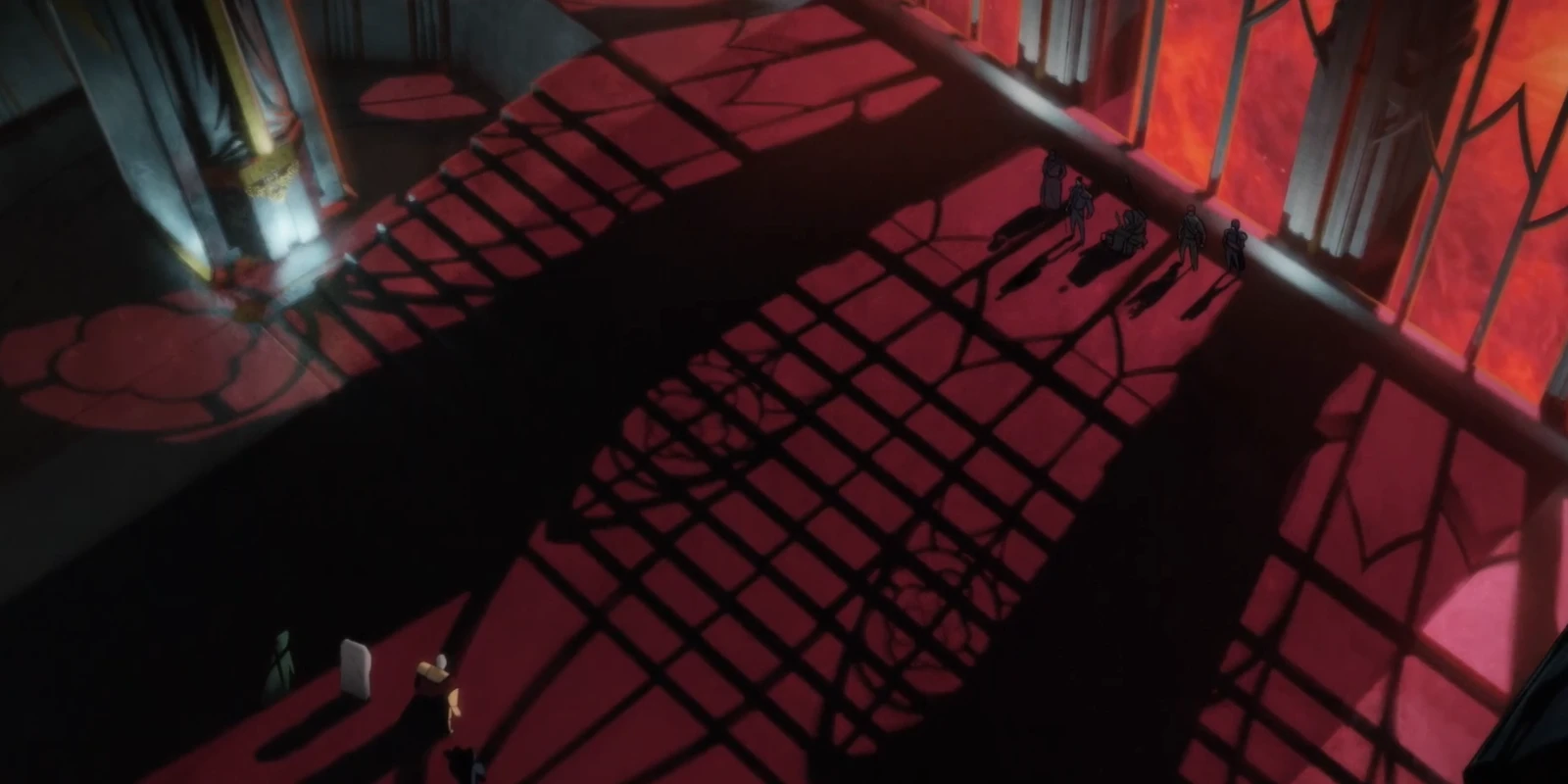As is often the case with me, it was the soundtrack of the Hammer and Bolter animated series that initially convinced me to watch it. The composer is Jonathan Hartman, whose name I didn't know when I started listening to the soundtrack releases, but I found the mini-albums extremely satisfying. Heavy synth work, cinematic tunes with less emphasis on melody than on mood. It's exactly the stuff I gravitate toward, so I decided it was probably time to see whether the rest of the show was any good. The short answer is yes, the show's amazing, and so over the course of several blog posts, I'll review each episode. There may be very minor spoilers, but ideally no more than you'd get from the episode description.
Death's hand
I've read several Warhammer 40,000 novels, most set during the Horus Heresy. Hammer and Bolter is the first time I've watched a show set in the 40K universe. It's actually still difficult for me to accept that in M41 it's normal to be religious and superstitious. For a lot of Warhammer fans, that's probably hilarious. But when your journey into the universe began with Loken dutifully carrying out the (non-vegetative) Emperor's crusade against superstition, it takes a while to get used to the Imperium as a theocracy.
This episode opens up with a fortune teller doing a Tarot card reading for the Inquisitor Kiamoro. My first impulse was to think that Inquisitor Kiamoro would kill the fortune teller for, well, heresy. But no, not at all. We're in M41, and Inquisitor Kiamoro is there earnestly, to hear his fortune.
The problem is, he's not happy with the results. No matter what soothsayer he asks, Inquisitor Kiamoro's death is foretold. Of course nobody can tell him how, when, or why because even in the far future I guess fortune tellers are just scam artists (he doesn't visit Chaos fortune tellers, obviously).
Inquisitor Kiamoro spends most of the episode trying to outrun his inevitable fate, which is actually twofold. There's that the prediction of his death that's been bugging him, but he's also being summoned to Terra, where he feels he's going to essentially be put out to pasture. A rival Inquisitor shows up to escort him back to Terra, and tensions run high.

There's a good fight scene, and some intrigue, some interesting flashbacks. I'll be honest. I didn't quite understand the ending. I watched it twice, and both times the visual setup failed me. I understand what happens, I just don't understand how certain key figures get to the physical locations they need to be for the events to occur the way they do.
And strangely, it was still satisfying.
Good sci fi
This episode is good sci fi. It hooks into the existing worldbuilding of 40K, tells a tidy story, and uses sci fi elements in interesting ways to move the plot.
Good Warhammer
This episode is good Warhammer 40,000. The setting, honestly, isn't essential. This story could have been told elsewhere, but it feels like a natural fit. You get little glimpses of insight into the politics surrounding the Inquisition, and more importantly you get really good insight into the effects of the Imperium on humans. This episode fulfills the promise of grimdark.
What I love most about this is that it's a little story snippet. It's not part of a bigger story (as far as I know, anyway), it's just some events that happen in an Inquisitor's life. (Of course, I could be wrong. Maybe this is a nod to some huge event in the Warhammer universe that I don't understand yet. But if it is, then it skillfully manages to hold my interest despite my lack of perspective.) After seeing this episode, I'm optimistic about the series. If the next few episodes are as good as this one, then I've found the sci fi show I didn't realise I was searching for.
All images in this post copyright Games Workshop.